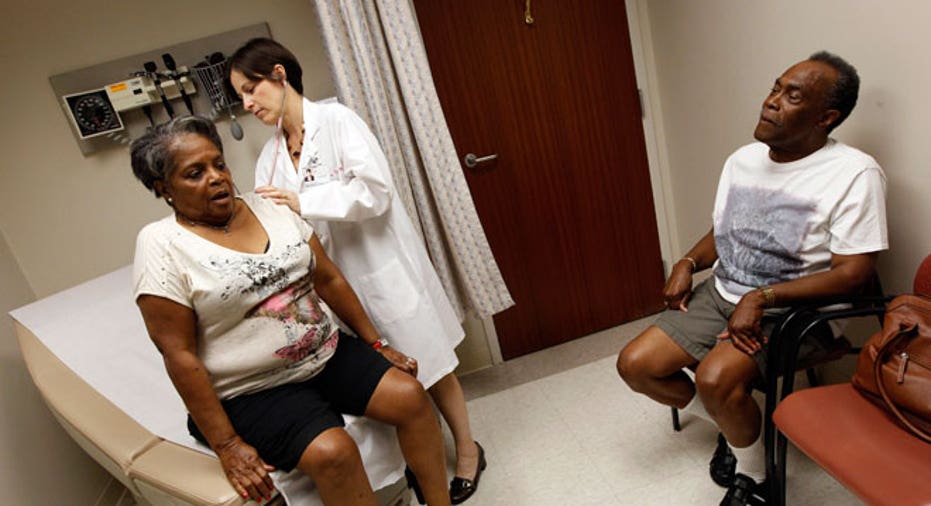What are Obamacare's Health Insurance Co-ops?

Consumers shopping for health insurance in the Obamacare online marketplaces, or exchanges, are likely to spot insurance companies they've never heard of before, including some startups known as "co-ops." The exchanges will introduce at least two dozen or so Consumer Operated and Oriented Plans -- co-ops, for short -- which are new nonprofit, private insurers that will operate in a manner similar to credit unions.
"Essentially co-ops, (which are) owned by the members, are groups of people who contract with insurers for better rates on coverage than individuals or small business could negotiate separately," explains E. Denise Smith, assistant professor of health care management with the Godbold School of Business at Gardner-Webb University in Boiling Springs, N.C.
Co-ops are part of health care law
The Affordable Care Act, President Barack Obama's historic health care redo, included $6 billion in funding to create co-ops, though congressional budget deals slashed that pool of low-interest loan money to $1.9 billion.
For now, your state may have a co-op, or maybe not. "Some states may have fewer insurance companies (in their) exchanges," Smith says. "In those cases, it may be more advantageous for groups to form co-ops."
Some two dozen co-ops were expected to be ready for the opening of the exchanges in two dozen states, according to the trade group the National Alliance of State Health Cooperatives, or NASHCO. John Morrison, the NASHCO president and former state insurance commissioner for Montana, says he expects many more co-ops to form in subsequent years.
Will a co-op really save you money?
"Health care co-ops are truly nonprofit and consumer-driven," says Morrison, noting that the companies have a mandate to reinvest any profit in either broader benefits or reduced premiums.
But whether co-ops will actually make health insurance more efficient and less expensive is not an easy question to answer.
"There are critics who argue that co-ops will have a hard time saving money because of high startup costs, even with initial government funding," says Gerry Wedig, a professor and health care economist with the Simon School of Business at the University of Rochester. "But the co-ops argue that they'll be able to cut costs because they can be more efficient and won't have to pay profits to shareholders."
Co-ops can indeed be cost-effective, asserts Julia Hutchins, CEO of Colorado Health Op, a Denver-based co-op. Because the Obamacare health insurance co-ops are starting fresh, she says they don't face the potentially costly transition to paperless systems that many older health insurers are facing. Also, Hutchins insists co-ops will be able to emphasize the sorts of things that can help bring down costs, such as wellness programs and preventive care.
Oregon offers a snapshot
The data out of Oregon suggest health insurance co-ops will be competitive with other carriers. The state planned to open its Cover Oregon exchange with two co-ops in the mix: Oregon's Health CO-OP and Health Republic Insurance Co.
In the Portland area, both planned to charge close to the local average for an Obamacare plan that might be considered typical: a "silver"-level plan for a 40-year-old nonsmoker. Health Republic's monthly rate for 2014 will be $256, and Oregon's Health CO-OP's premium will be $271.
They'll be vying in that market with 10 other plans. The average monthly premium for all 12 is $260, before federal subsidies. The lowest premium approved by the state's insurance division was $215, and the highest was $329.
How does a co-op operate?
"For the typical member, a co-op will most likely work a lot like their private insurer currently does, but with some key differences," Hutchins says.
While professional administrators will carry out day-to-day functions, members (that is, the consumers) will help shape policy by electing boards and giving input through regular surveys.
"The members are my bosses," Hutchins says. "Not the shareholders."
Though co-ops will be available in only about half the states in 2014, co-op members will be able to use their coverage in their home state and elsewhere, she says.
"Just like a private insurance company, we have the ability to contract with providers and establish rates for out-of-network service," Hutchins says.
And what about the network -- and your selection of doctors? It may depend on where you live.
"In rural areas, they may not have a lot of choice because there aren't a lot of providers," Hutchins says. "But we expect members living in urban areas to have several choices."
Is a co-op right for you?
Consumers curious about the new co-ops may wonder about the safety of a new and unfamiliar health insurance company. Morrison says Obamacare exchange shoppers can choose co-ops with confidence.
"The chances of a consumer not getting their claims paid because their co-op failed are practically nil," he says. "It's important to realize that all of the Affordable Care Act co-ops are very well-funded, so the chances of a failure are also very remote."
When sizing up a health insurance co-op, Hutchins advises consumers to consider more than just price.
"One of the most important things is benefit design," she says. "Thankfully, the exchanges will help consumers do an apples-to-apples comparison so they understand what all the different plans will and won't cover."
She says customer service is important, too. The hope is that a more transparent marketplace will eventually allow consumers to shop for health insurance by looking not only at price and benefits, but also at how quickly claims and disputes are dealt with, and how easily a customer service rep can be reached on the phone.
"We won't have ratings on service just yet because exchanges are new," she says. "But eventually, we expect consumers to be able to use service ratings as they shop for coverage."
Copyright 2013, Bankrate Inc.



















